Pablo Hidalgo Reveals Rian Johnson’s Contribution to Bloodline and Other Facts About the Novel
Lucasfilm’s Pablo Hidalgo shared several interesting facts on Twitter about Claudia Gray’s novel Bloodline, including Episode VIII director Rian Johnson’s contribution to the story, and more…
Ten days ago it was revealed that Star Wars: Episode VIII director Rian Johnson had added creative input to Claudia Gray’s newly released novel ‘Bloodline’. Now, thanks to Pablo Hidalgo we know just what Johnson’s contributions were to the story, as well as several other interesting bits.
Some Bloodline fun facts. I’ll try to keep them spoiler free. @claudiagray did an amazing job of combining a number of story threads.
— Pablo Hidalgo (@pablohidalgo) May 8, 2016
The scandalous revelation in the book was actually a pitch for a pre-TFA animated short proposed back in 2012 called ‘Scandal of Blood’
— Pablo Hidalgo (@pablohidalgo) May 8, 2016
The disposition of the New Republic, its political factions and the napkin incident were pieces that came from Rian.
— Pablo Hidalgo (@pablohidalgo) May 8, 2016
Casterfo is a character that existed, in various forms, in the earliest versions of the TFA story. And @claudiagray gave him distinct life.
— Pablo Hidalgo (@pablohidalgo) May 8, 2016
The ‘Scandal of Blood’ idea is what Rayne & I called ‘Star Wars House of Cards’ & said, this should be a book someday. 4 years later, it is!
— Pablo Hidalgo (@pablohidalgo) May 8, 2016
And I can’t say it enough. @claudiagray took a page full of ideas that we passed along to @jenheddle and turned it into amazing novel.
— Pablo Hidalgo (@pablohidalgo) May 8, 2016
Star Wars: Bloodline is out now, so make sure to grab a copy. The book is really one of the best from the new canon.
You can read our review HERE.
Founder of SWNN, MNN and The Cantina forums.
Born on April 24, 1980.

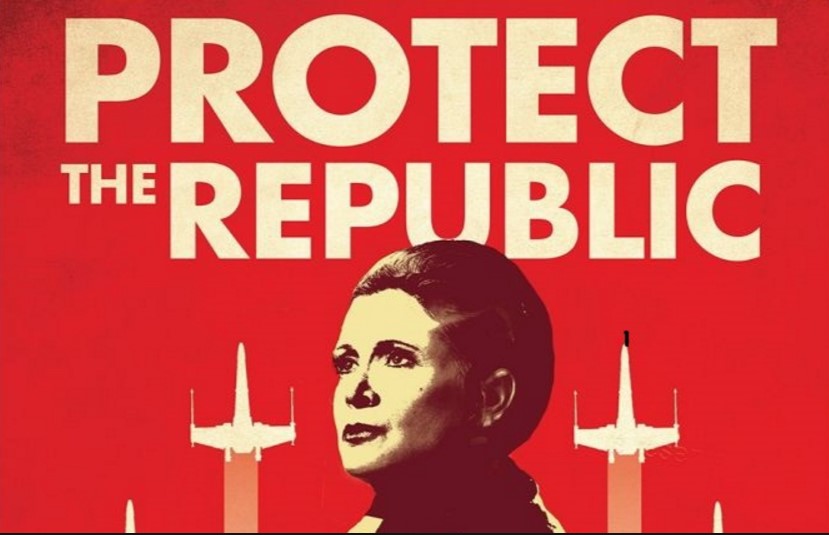
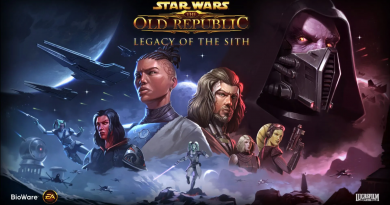
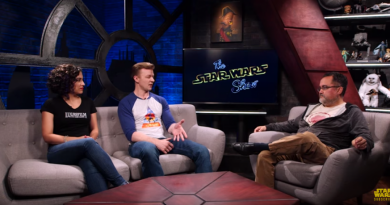

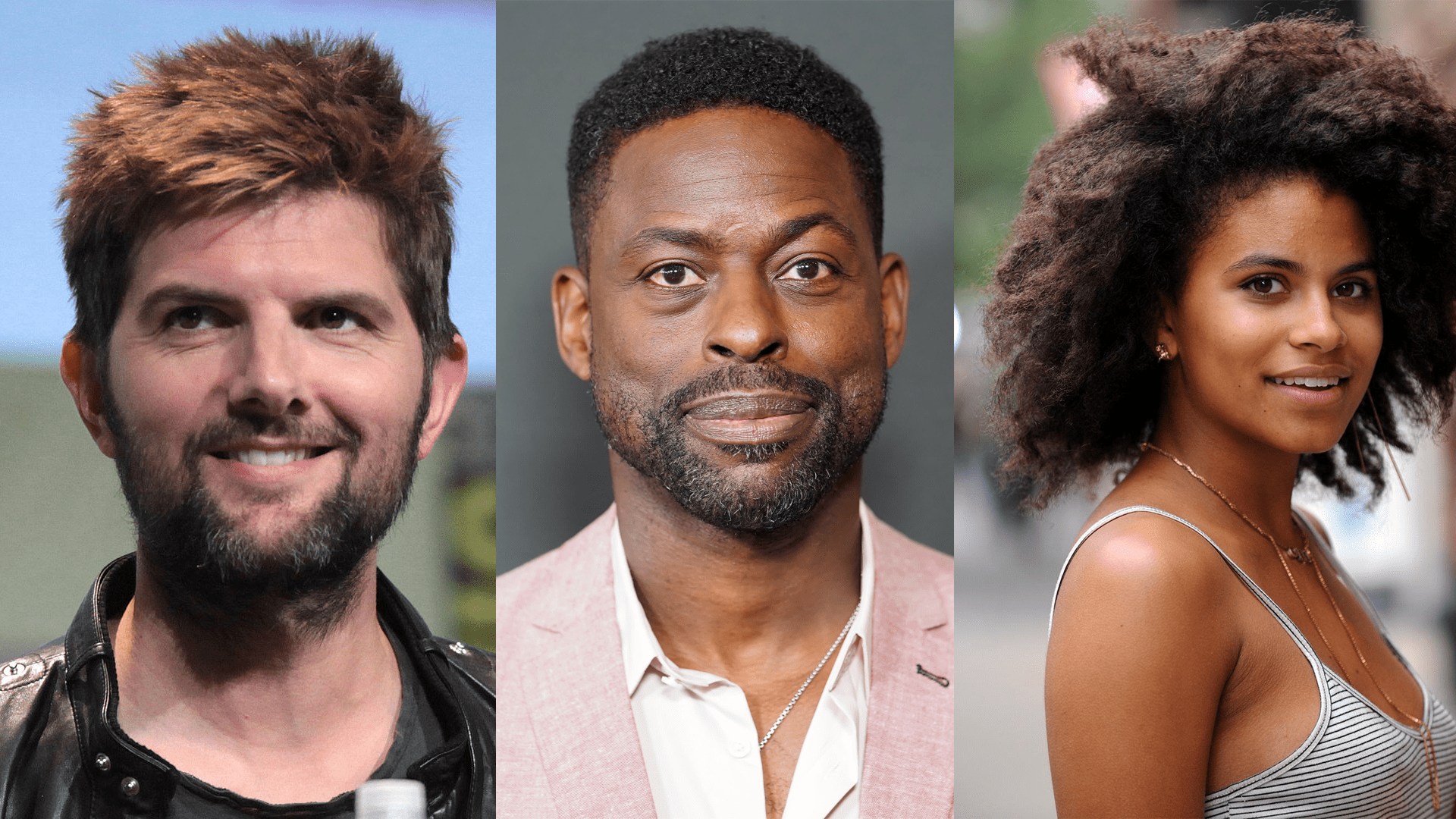
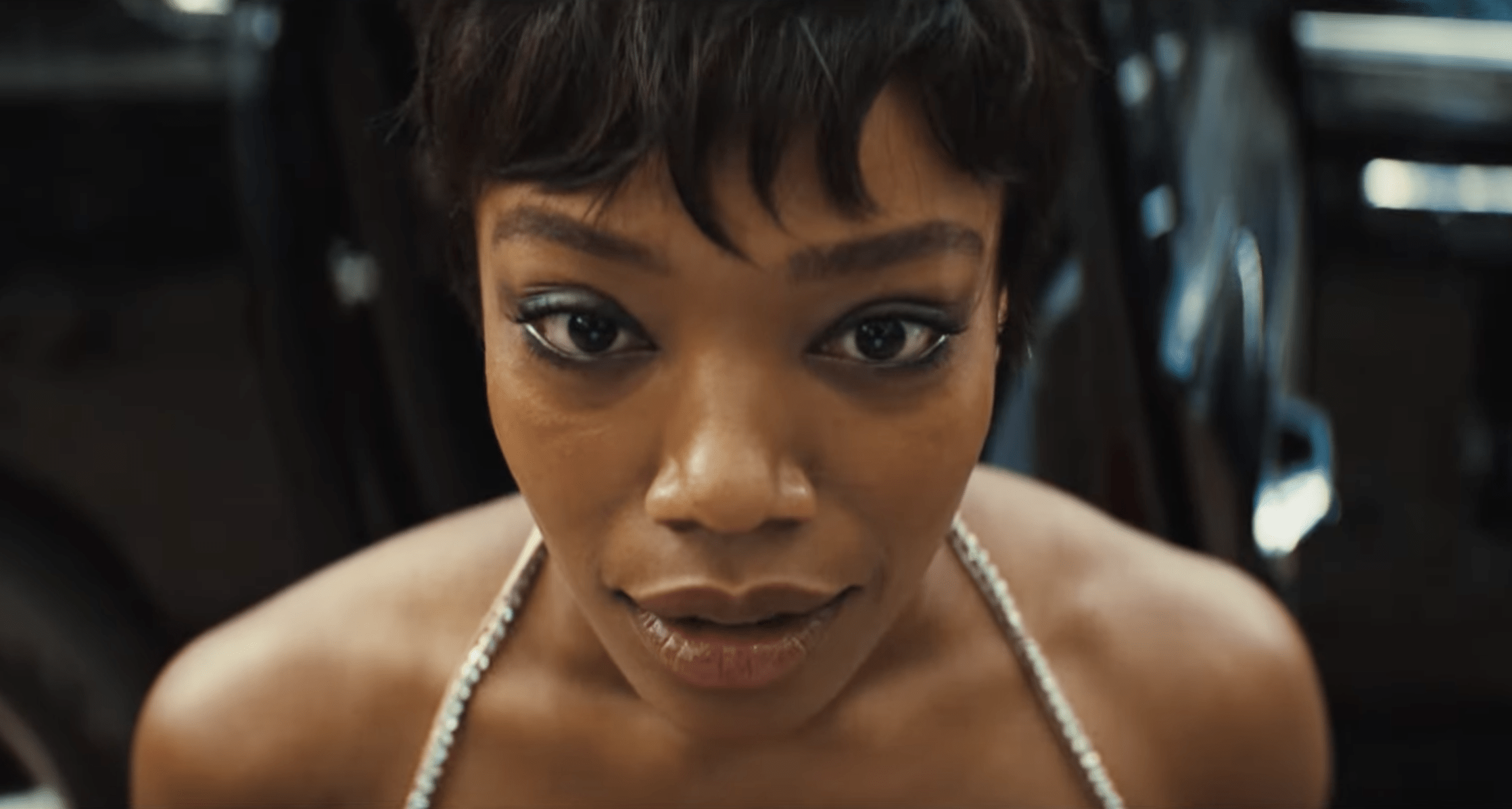

Awesome. This really was a good book…Claudia scores again.
Some fantastic revelations and plot points in Bloodline, and even a couple to put some of the more silly fan theories out there to rest.
Though since some of the fan theorists are near-conspiracy theorists, they won’t let evidence stop them.
Touché. 😉
#InClaudiaWeTrust
Just started reading but to be honest, so far it seems pretty average. I’m starting to thinking it may have been over-praised because of Caudia’s name and hype. We’ll see…
Of course everyone is going to have their own opinion and take, as with anything.
It’s difficult because I went in to Lost Stars pretty skeptical not being an EU fan and came out having very much enjoyed myself. My expectations were higher for Bloodline and I’m now about 6 chapters in and it’s not exactly overwhelming me.
wait for the development of Ransolm’s and Leia’s realtionship, its what ultimately makes this book
Lost Stars won me over much faster than this one, but I’m starting to enjoy the characters more. Only about halfway through. I also felt a bit underwhelmed by this one initially, and still hoping for some more meat.
Hopefully this means we’ll get some actual politics in episode 8. Every Star Wars film but 7 involved some, as it helps to flesh out the story and provide insight into each faction’s beliefs. I’m not expecting anything on the level of the prequels though.
Yes I was big fan of the politics in Episode V
https://youtu.be/WpE_xMRiCLE
7 had stuff about the New Republic & the Resistance, about as much as Episode IV did.
No, episode 4 had more politics. We were introduced to governor Tarkin, we learnt about the Imperial Senate, we were introduced to the crime lord Jabba the Hutt, we got background information on the rebellion and why they opposed the Empire etc. Most people don’t pick up on the amount of politics in the originals as it’s more subtle.
All episode 7 does is poorly explain the relationship between the First order, Resistance & the Republic.
There’s a difference between background information and politics. For instance, Jabba isn’t politics.
Not then, but he is now thanks to TCW and Bloodlines explaining how Hutt Space fractured after his death. He turned from a local gangster into a political figure.
We’re talking about Episode IV, not TCW or Bloodline. If we’re allowed to bring other pieces of canon into this, than there shouldn’t be a problem with VII’s politics, as they’re well explained in Before the Awakening.
Jabba is politics because he was a crime lord and ruled in a place where the Empire only could project so much power. The Stormtroopers we saw in IV were there on a mission and not really representing a permanent Imperial governance. In short, Jabba was the most significant local authority.
Question: does simply seeing a government agent in a story equal politics? No. Does seeing the guy in charge equal politics? No. Does hearing about trade negotiations or debates about centralization of power equal politics? Yes.
1: Obi-Wan sets the scene when he describes Mos Eisley as a ‘Hive of Scum & Villany’. This invokes what is known in international relations as a feral city…and Jabba is the guy in charge.
2: Jabba’s the crime lord in charge and Han Solo’s interaction with this corrupt, local authority is his main motivation throughout the OT. We see Jabba acting on Han’s life (even though we do not see him directly) in IV & V when Greedo shoots first and then Han’s motivation to leave the Rebellion being the bounty hunter they ran into in Ord Mantell. This latter point shows not only that he can wield power in his immediate area…but on other planets.
3. In the special edition we actually see Jabba directly asserting his influence on Han.
4. The entire first act of Jedi is about resolving this conflict for Han. The destruction of Jabba’s corrupt empire is a nice little foreshadow of the fall of the Galactic Empire.
Now you may be thinking this is a criminal empire is not the same as politics. Politics is about wielding power and influence; and from the time we see him in Star Wars he is doing this. Lucas further frames this in Ep I by showing him as THE authority on Tatooine by presiding over the Boonta Eve race. They establish the Outer Rim as a feral political territory by saying Tatooine is in Hutt Space and then Qui-Gon threatening to take their dispute to the Hutts to settle a la a court.
Jabba as a political actor is subtle in the OT but on the nose in Ep I…which is further evidence that the OT does it better than the PT. 🙂
Correct. Even in 1997, when Lucas rebooted Star Wars that cgi pile of poo was still just a gangster.
Tarkin was a Grand Moff, not a governor. He was LESS political than General Hux.
The Imperial Senate was briefly mentioned, as was the New Republic.
Jabba the Hutt has not bearing in politics, but even if he did, he barely gets a mention in Episode IV, and doesn’t actually appear in it (ignoring the SEs). In VII we get King Prana, also a crime lord type.
Any “political” backround in Episode IV has an equivalent in VII. You simply choose to ignore this because you WANT to find another reason to dislike Episode VII. I don’t why.
To be fair TUD, Grand Moff IS a Governor. Hence, why Liea actually refers to him as “Governor Tarkin”. 😉
Yep, but he did nothing political in the movie, whereas Hux actually gives a Hitler-type speech.
True. I’m only clarifying his status as a Governor. 😉
“Tarkin was a Grand Moff, not a governor. He was LESS political than General Hux.” You do realise that a moff is a governor right? Why else would Leia call Tarkin Governor Tarkin? Not only is this mentioned in episode 4, but episode 3 and Rebels as well.
“The Imperial Senate was briefly mentioned, as was the New Republic.” The Republic is mentioned, but there is little else information given about it. Episode 4 gives a brief description of how the Imperial Senate works, their relationship with the Rebellion, and the Emperor etc.
You do realise that politics doesn’t just refer to debating within a government chamber, right? Jabba the Hutt is both the ruler of Tatooine, and leader of the Hutts. Politics refers to the governance of an area. His criminal empire’s main source of income is detailed as well: spice.
Insulting people because they disagree with you. That is childish!
no
This is actually extremely revealing (if you’ve read the book). Most people will think this to be the case already, but now they KNOW it’s the case. 🙂
Yep. Mandatory reading for 8.
No.
I hope you’re right.
Hmmmm…not mandatory, but it certainly broadens and compliments TFA, making it “Recommended” reading for those of us that are more than the casual viewer.
Nah.
Maybe it’s my fault as I know this book was focusing on Leia, but I expected alittle more of Han and something on Luke & Kylo Ren. This is just more Prequel-type political stuff that is interesting, but not that interesting.
I’ll be honest, keep the politics to a minimum in Episode 8 & 9 and continue the tone and pacing of the OT & TFA. The personal (more micro) story just plays better in the movies. I understand the Politics paints a broader picture of the galaxy, but in the end the OT style translates better then the PT style on screen. The small spoilers are enough to wet your appetite for Episode 8.
People complain there wasn’t enough exposition in TFA and they griped about politics. No matter what they do someone will complain it’s too much of this, or not enough of that. They are gonna fall on some swords of negativity no matter what they do.
I think TFA needed a little bit more of politics, it’s just because it doesn’t come from 3 films, but 6. IV, V and VI never delved with politics, but even not being a fan of the prequels, once done they add a political background to the OT that you can not scape anymore. 35 years after that political setting… yeah, a little bit of background would have been great, and it’s important to understand Leia’s character at this stage.
That said, we don’t need much of it anymore. The Prequels explained an era where a republic becomes a empire, and all the “house of cards” part was important. I think this new trilogy is more tactical, as it was the OT.
And now I’ll stop procrastinating…
I disagree, I would say a little more of the political stage setting is necessary, not overly done, but a little. Certainly a few minutes more than what we got in TFA. It’s okay to show the New Republic Senate getting destroyed, but we really don’t know who any of those people were.
I think we are agree Jacobus, I was saying that TFA needed a little bit more of politics.
No doubt as I didn’t want my post to come off as complaining. I think Bloodline really opened my eyes to the key difference in the OT and PT, as they are really two different styles of movies that probably appeal to 2 different types of movie goers.
It’s funny cause I think fans were arguing about the wrong things with the PT all these years. The Jar Jar debates, Little Ani debates, etc, were missing the big picture. The OT and TFA are a 2 hour adventure ride that gets real intimate with the characters, and is driven more by them then the story. The PT is more driven by the story then the characters, and slows down to the tell that story.
Bloodline was OK, but it was more in the vein of the PT storytelling style. It’s just natural that some SW fans will gravitate to the OT storytelling style, while other SW fans will gravitate to the PT storytelling style.
I think the PT were just poorly executed movies period. Little Ani and Jar-Jar infantalized the SW universe. But also everything it took until the third movie to really see fighters that tied into the Star Wars aesthetic. Same with the clone trooper armor and most planets. The CGI also made things feel too clean…not as used as the OT and thus less real.
As for your point about the politics: I love political thrillers. In this the PT failed too. The focus was on grand speeches and then thin pretenses of action. It had the pacing of Star Trek without the depth IMHO.
i disagree imo the politics had a kind of depth – the Sith Lord’s plan was complicated, it had many moving parts and it was quite clever & logical e.g. the way he crushed the Jedi between his 2 armies.
” … as they are really two different styles of movies that probably appeal to 2 different types of movie goers …”
Not necessarily, certainly not vastly different. I grew up on the OT in the 80s and 90s, but I adjusted to the difference in style of the PT and feel it compliments the OT very well. It is all one interconnected story/saga and not two separate stories in my mind and in fact as well. As a lover of the entire saga I believe in being accepting of all of its flaws, with the understanding that each of the seven films is flawed. While I love the PT, I can’t stand the Jar Jar characterization, certainly in TPM.
SW wouldn’t be SW if I felt all of the films were flawed. The Original and ESB are classic films, it’s only ROTJ where they start to become flawed. If ESB were a flawed film, then SW franchise would be just like any other franchise: Great original film and a bunch of OK sequels. ESB along with Godfather II are the best sequels of all-time, IMO.
At least we now know Rian Johnson will add some political intrigue since the factions and bombing came from him.
Actually the wider scope of galactic politics combined with the personal level story/style was one of the PT’s strengths that brought a great deal to the saga. If better fleshing out of the Star Wars galaxy is “boring” and you want a shrunken galaxy that is sad. My only major quibble with TFA is that it shrunk the galaxy a little too much and shows the myopia of the anti-PT crowd as it pertain to Star Wars which JJ (TPTB behind TFA) is staunchly a part of.
I like politics in PT. I hope that EP VIII and IX will have more politics.
Action and action and nothing else is just shallow and boring.
what I really enjoyed was a lot of influence in New Republic coming from EU Parliament and its politics. I was sort worried that the book with its two fractions will lean too much towards Rebulican vs Democrat discourse, but it turns out that Claudia had much broader outlook on the “real world” politics than that. i like the minor references to the 2016 campaing especially when she hints at independent senators and candidates implying that both Leia and Ransolm are struggling to pursue their agenda because they are confined within the respective party line. fun book
I’d really love full spoiler review, either in video or article form at some point. I definately want to the read novel sometime as I’ve heard great things, but I like keeping up with canon and I don’t have much time for reading fiction these days- plus spoilers never bothered me where most things are concerned
Just wait for a summary to appear on Wookieepedia. It’s how I usually keep up-to-date.
Why is no one more upset that now canonically, Han Solo went from Rebellion General to Space NASCAR?
Why would that upset us?
Because it’s lame. It was just a cheap way of keeping him out of the picture.
I just want a spoiler review. I’m probably not going to read any of these new books
Though I am a massive fan of Lost Stars and of Claudia Gray as a writer, this novel sadly fell flat for me.
I didn’t completely hate it, she has done some excellent work in charectorisation and world building. Where it fell short for me was in believability.
Without spoilers included, I will say that in multiple circumstances decisions were made and information was discovered in ways that just didn’t make sense and felt like the author was trying to tie parts of the story together without knowing truly how to.
Nor did I think the creation of the Resistance was done naturally. Ultimately it came about out of paranoia and a lack of faith in the government Leia had spent years fighting to create. And so to me anyway, Leia is less a hero than she is someone who will resist any form of leadership that doesn’t conform to her ideals.
A Galactic nuisance so to speak.
the problem is largely in the existance of a “resistance” at all. Lets be honest, whether or not you loved or hated TFA, the whole republic-resistance-NoPoliticsNoWorries agenda brought the film down.
The only reason the resistance existed was so JJ could use it as the “rebel alliance” of his ANH “homage” cough-cough. the resistance should never had existed, Leia should have been apart of the republic, and Claudia Grey has tried to give the idea life and meaning. Unfortunately, i agree. it kinda fell flat, but thats JJs fault more than Claudia’s.
I’d have to disagree with that. The whole idea of a military based movement taking on the First Order was a fantastic move by JJ. We don’t need the Republic in these movies. By distancing himself from the politics he was able to take us into the real ground based struggles of a war.
The problem I referred to was that the creation of the Resistance lacked in flavour.
I think we’ll have to agree to disagree on that then. I’m kind of surprised you liked it (but thats cool) seeing as most people i speak to – even those that love the film – generally view it as pretty weak. The main issue is that the film assumes you care about the republic, but by creating the resistance as a seperate entity (and honestly, the “real ground struggles of war” wasnt on JJs mind. The resistance is a remake version of the rebel alliance, nothing deeper from JJs end **remake-coughcough-remake**) and not investing in the republic directly, why the F would a viewer care when the first order blow Hosnian Prime to hell? you could have achieved a lack of politics and a focus on war/battles without a resistance and with it all being the new republic. and if there was no resistance, and it all was called the new republic, we would have been more invested in the stakes and gravitas of Hosnian Prime when JJ blew it to hell in TFA. IMO anyway.
The Resistance makes perfect sense from a historical viewpoint. During both World Wars Americans who wanted to fight when the US government was strictly pursuing non-interventionist policies joined para-military groups to engage in combat. For example the famous Flying Tigers in China against the Japanese in WWII.
In Vietnam Ho Chi Minh did not just rely upon his conventional forces but the Viet Cong which was very Resistance like.
During the Spanish Revolution in the 1930s Hitler involved himself in a similar fashion to get his forces combat experience.
So yes, the Resistance very much makes sense.
come on man, there is a historical precidence for almost everything. If you can honestly look at that film and the history of star wars and say that “the resistance” exists for reasons other than mainly being a mirror of the rebel alliance for JJ’s ANH knock-off, then your either not being objective, or just plain wrong. The fact is, with the way that star wars has been told episode-to-episode (look up the ying-yang story structure and compare it to star wars films) the idea of the good guys being the resistance ( a small rebellious force fighting a superior power) doesn’t work, doesn’t gel with the trajectory of star wars storytelling, and only exists so that JJ can remake ANH (for better or worse.)
So because I bring in a different perspective than yours I have to be dishonest, biased, or wrong?
The Ring Theory does make sense. However, Lucas has also mentioned several other influences on how he wrote Star Wars. Mainly myth and history. Much of Star Wars’ aesthetic is based on history. The guns used to make the OT blasters were WWII surplus. I was 2 when Star Wars (now ANH) came out, and as I grew up it was the historicism and mythology that drew me into the series rather than a narrative rhyming scheme.
And it is a theory that has its flaws. The story line was in flux for the entire run of the 6 movies Lucas made. First he wanted to make a direct knock-off of Akira Kurosawa’s ‘Hidden Fortress’…until he got sued by Kurosawa who just got burned by the knock-off of ‘Seven Samurai’ known as ‘The Magnificent Seven’.
Over the years the story grew and changed during the creation of the OT. In the first draft of ESB Anakin Skywalker was a Force ghost and Luke’s twin was a girl named ‘Nellith’. Boba Fett was going to be the main villain of what would become known as RoJ. Endor was originally Kashyyyk and the Ewoks were Wookies. Han was frozen because Ford had not committed to coming back for a third movie. The very first EU was scrubbed to make way for ESB…a novel written by Alan Dean Foster (‘Splinter of the Mind’s Eye’) was the first sequel but was largely retcon’d out of canon to make way for ESB.
So yes, while the Ying Yang theory makes sense and is quite compelling…it is just another fan theory that supports an image of infallibility Lucas has cultivated in the last 20-30 years.
But what has remained constant is the stories have been rooted in historicism.
The rise of the First Order makes sense; it is a parallel to the rise of Nazi Germany following WWI being caused by the harsh treaties forced on a defeated Germany by the victors. Tired of war, the Allies pursued peace..Wilson’s League of Nations was a valiant effort…but one that failed because of bickering between the powers that be.
Then you have the interventionists vs. the isolationists. This was brought out in the novelization of TFA. During this time governments fielded para-military organizations to support resistance to the Axis powers without directly going to war.
And so this makes perfect sense for the trajectory of the Star Wars movies if you accept that it is more likely that Lucas cobbled together the OT from the movement of history and mythology as he went along. All the while trying to adhere to a dynamic background treatment he wrote to aid in writing the original Star Wars movie. Instead you want me to surrender my knowledge and reason to the theory that a functionally illiterate genius used his visual acumen to birth this deep Shakespearean cycle of perfect, literary story-telling.
In all honesty, for Ring Theory to work…a new ring must be forged. A new dichotomy has to arise to add tension and conflict to an order that is flailing. That the New Republic would fail would make perfect sense…but then what to replace it with as the ‘good guys’? A faction within the New Republic (that has realistic counterparts in our world so it makes sense to us) would hold true to its ideals while preparing to defend them against a rising (Phantom?) menace…makes perfect sense…and is in parallel to the first movie in the I-VII ring. Leia in her role as an independent rebel/resistance leader, Han as the solo scoundrel, and Luke as the pure/enlightened hope isolated from the Galaxy…all serve to pass on the torch from one generation to another.
Luke and Leia have both grown into what their mentors were when they were young. Leia fighting bureaucratic ineptitude by going off on her own and founding a movement of her own to do what she believes is right…just like Mon Mothma did. Luke journeying into exile just like Obi-Wan and Yoda did. (Han kinda stayed the same…but then again he was always the unmovable rock to the twin’s unstoppable Force!)
Do I think TFA was a perfect movie? No. The soundtrack was the weakest of all the movies thus far. I liked the character of Rey, and most of Ridley’s portrayal of her…but when she spoke of ‘Luke Skywalker’ as a gushing fangirl…it seemed incongruent with the tough, hardscrabble character she had played throughout most of the movie. Poe Dameron was a little over-powered…and him surviving the crash was a little hokey. Finally, the destruction of Hosnian Prime and essentially the New Republic did not carry the emotional weight and gravitas that Alderaan did in the first movie. In ANH we knew we were looking at Leia’s homeworld and her look of terror and strength in that moment conveyed all we needed to know. The destruction of the New Republic did not carry this gravitas.
In the end, I accept that someone who accepts the literary theory would find TFA more than a little jarring and even nonsensically weak. I felt the same way watching TPM in 1999…that movie did not jive with my preconceived notions of what that movie should have been.
So I have sympathy for you. But for me, Star Wars is a movie that inspired me to study history and international relations in college and after serving in the Air Force doing the Troops to Teachers program (I’ve actually designed curriculum using the historical/mythological/sociological underpinnings of the Star Wars universe). And as someone who ascribes to that theoretical construct…the Resistance HONESTLY makes sense to me. It follows the flow of politics and history quite well.
Fair enough pal. I’d I sounded harsh, its because most people I find who like TFA can’t defend it except with “the prequels suck and this is awesome.” I agree with a lot of what you said about historical influences, that has been clear in all star wars movies. I just happen to think that, whilst you like the resistance and there is certainly historical presidency, IMO itbonly exists as a way to return our heroes to an “underdog taking on an empire” tangent, which IMO is lazy and goes against the spirit of star wars. Hell, TFA itself isnt really in the spirit of star wars. Star wars has always been about exploring new and original content, both visually and story wise. TFA doesn’t honor this at all. All IMO
I like the “Empire = WW1 Germany, First Order = WW2 Germany” analogy. imo Rey fan-girling was good as it fits in with her having a x-wing fighter pilot doll which suggests she may have been among resistance heroes in her first years and also it supports the Dosmit Raeh naming theory, which in turn supports the “Rey’s a clone” theory and the “Rey’s memories have been wiped” theory which in turn supports “Rey Solo” and the “evil so great that drastic measures were required” theory.
So you see the struggles i have with this jigsaw puzzle…
Fair enough assessment. At least Claudia shows Leia is human.
SW is all about a family dealing with power issues among a backdrop of individuals, groups and states grappling with the same. Power corrupts all in the end – even The Jedi – which is why we need to limit power over others!
Thank you!
“Leia is less a hero than she is someone who will resist any form of leadership that doesn’t conform to her ideals. A Galactic nuisance so to speak.”
There’s nothing wrong with that! Burma’s Aung San Suu Kyi subscribes to the democratic ideal. She believes dictatorship is harmful. Therefore she resists any form of leadership that doesn’t conform to her ideals. As such she is a hero, a winner of the Nobel Peace Prize and a nuisance to Burma’s oppressive military government.
What’s the napkin incident?
Bombing of the Senate building. It’s called that because of the first and the only warning was on the napkin on Leia’s place.